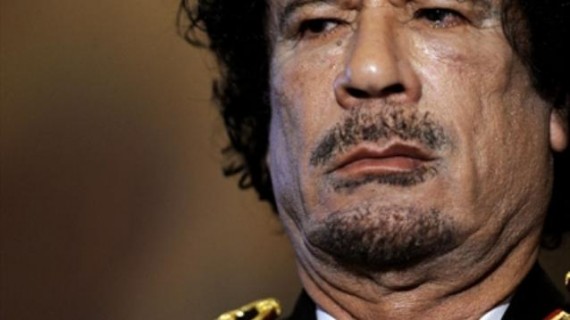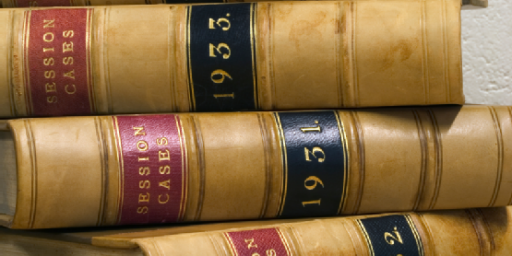Qathafy?!
There are 164 technically acceptable transliterations of the name of Libya's soon-to-be-former dictator.
Transliteration of certain foreign names has been a subject of controversy over the years. Perhaps none has signified the problem more than the soon-to-be-ousted dictator of Libya.
When I was in high school and college a quarter century ago, his last name was spelling with a Q by most of the major media outlets, with a handful preferring a K or Kh spelling. Now, most use a G spelling. As the keeper of the style guide at an international affairs think tank, I’ve adopted a compromise: Gaddafi for blogs and al-Qaddafi and Qaddafi for publications. This reflects my desire that the website reflect the most common spellings and style, for reasons of both familiarity and search optimization, and the fact that we have a Middle East center and that particular transliteration preferences can be a signifier of expertise within in-communities.
Amusingly, just as the question is hopefully about to become moot, Pat Lang, an Arabist of the first order, has introduced me to yet another spelling I’ve never seen: Qathafy.
I’m reliably informed by Andrew Exum that there are 164 technically acceptable transliterations.







Author Peter David started calling him “K-Daffy,” and I stole it from him.
Similarly, Meryl Yourish came up with calling Syria’s Bashar Assad “The Dorktator,” and I lifted that, too.
J.
‘Qaddafi’ is the standard State Dept. transliteration and it’s the one I’m used to using. Other spellings are an attempt to reconcile dialectical Arabic–how the name is spoken–with written, Modern Standard/Classical Arabic. His name uses two Arabic letters that don’t exist in the English alphabet, but regional dialects change the sounds of those letters from their Classical models.
Hopefully, we’ll see less of the name as it gets relegated to history books.
I’m with John (and the State Department). The proliferation of letters, or more importantly, sounds, that don’t exist in English makes many things Arabic practically impossible to either spell or pronounce in English. The only one that drives me crazier than the many spellings of Qaddafi is the many pronunciations of Al Qaeda, but I suppose that’s mostly since Al Qaeda has been talked about so much over the past decade.
Whenever my frustration grows to unmanageable levels, though, I just remind myself how many years I spent as an Arabic linguist before I could correctly pronounce the consonant in the middle of Qaeda, or even moreso, even being able to hear the difference in pronunciation between the words for Friday and mosque, much less being able to produce them with any sort of accuracy.
I really can’t expect folks to be able to grasp these things based on passing acquaintance when it took me years of study. And I still never got it exactly right.
@John Burgess: Hopefully, we’ll see less of the name as it gets relegated to history books.
After Saddam and King, I had the same hopes for “Hussein…”
J.
Oops, I’ve been away from Arabic for too long. Instead of the Arabic word for Friday, I meant the word for university.
I think. Arabickin’ are hard.
As you may have noticed, I have adhered to the State Department’s transliteration. Pat’s is a pretty good representation of the spoken version. The two letters John Burgess refers to are the first, a voiceless uvular plosive, and the interior, a voiced dental fricative. But these vary somewhat in how they’re pronounced based on dialect. Which is why I stick to the State Department version.
@Boyd: As ‘university’, ‘Friday’, and ‘mosque’ in Arabic are all from the same triliteral root, the confusion is easy. It’s just shifting those tricky, frequently-invisible vowels around now, isn’t it?
Is it just me or does that photo make him look like the bastard lovechild of Vincent Price and Alan Rickman?
@John Burgess: Well, at least there’s a damma in “Friday,” where the mere addition of the ta marbuta at the end of “mosque,” turning it into “university,” gave me trouble for years. That is, until I had a Lebanese Christian (Southern Baptist, no less) teach me the dialect spoken in Aden, Yemen. She had a remarkable talent for hammering a point into my thick skull.
Wow, that makes my eyes cross just reading that, and I lived it!
Let’s just kick Pat Lang’s ass.